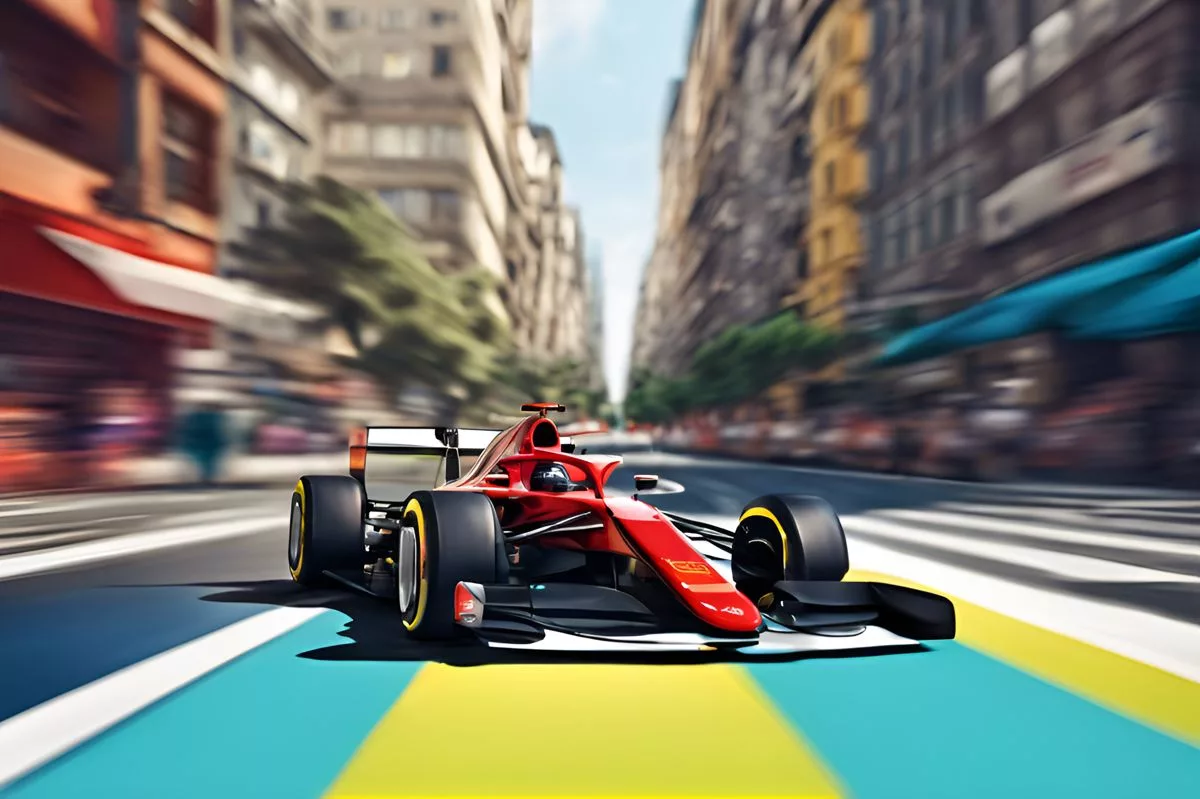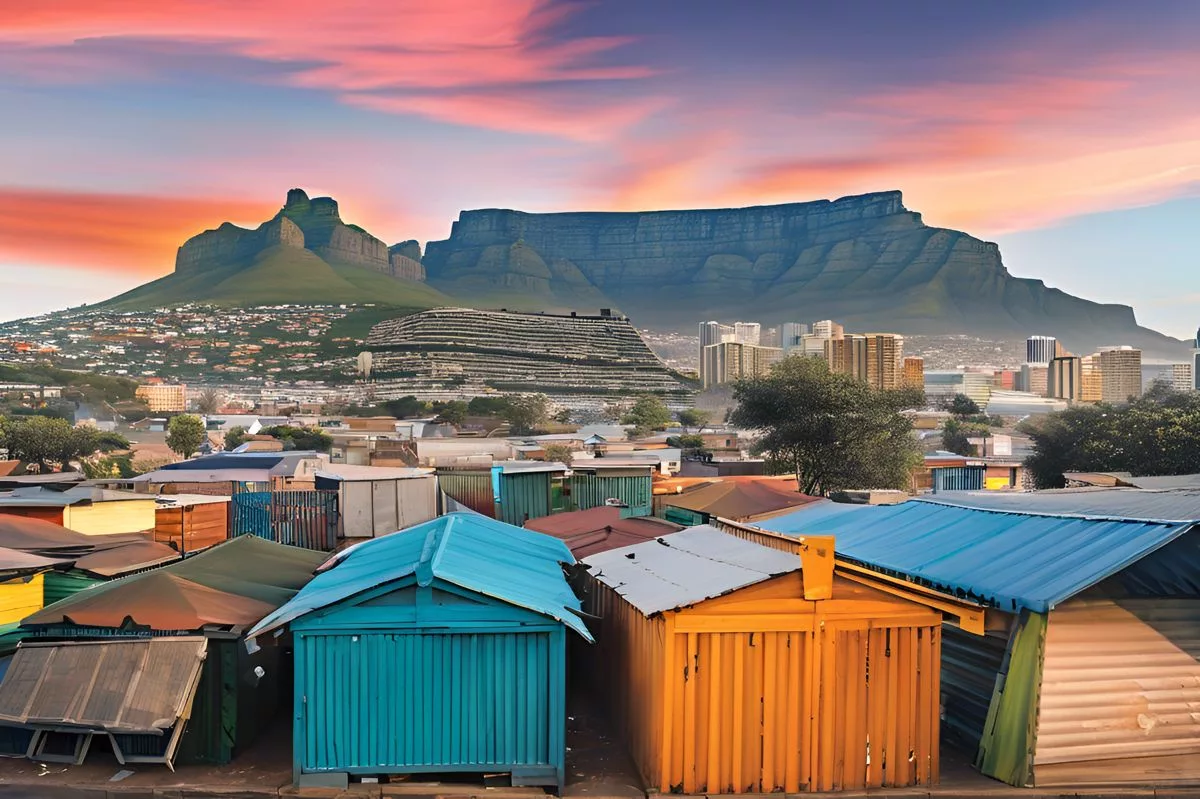In Sandton, the Red Bull Showrun Joburg set the stage ablaze with excitement, as fans cheered for the roar of the legendary RB7 racing car. This thrilling event not only showcased the speed and skill of Formula One but also reignited hopes for a Grand Prix in South Africa. With the beautiful sound of the car harmonizing with the national anthem, the crowd felt a deep connection to their country’s motorsport history. The push for a Grand Prix holds the promise of cultural exchange and economic growth, making South Africa ready to shine on the global racing map once again. As the engines revved, so did dreams of a bright future in motorsports!
What is the significance of the Red Bull Showrun Joburg in Sandton?
The Red Bull Showrun Joburg revitalized interest in Formula One in South Africa, showcasing engineering excellence and fan enthusiasm. It symbolized a push to re-establish a Grand Prix in the country, emphasizing cultural exchange, economic opportunities, and local motorsport talent development.
The Thrill of Speed Returns
The crisp air of an early morning in Sandton buzzed with an electric anticipation, as fans gathered for a thrilling exhibition of speed and skill. The Red Bull Showrun Joburg promised excitement, and it delivered in spades. This spectacular event, featuring the legendary David Coulthard and the Oracle Red Bull Racing Team, showcased the enduring allure of Formula One, especially among South African enthusiasts eager to see its return to their home turf.
Katherine Street morphed into a temporary racetrack, alive with the powerful roar of the RB7’s V8 engine. This remarkable machine, a champion in 2011, resonated with a captivating symphony of engineering prowess that thrilled the assembled crowd. More than just a showcase of speed, the event celebrated engineering excellence, historical significance, and human achievement. The highlight came when the RB7’s roar harmonized with the South African national anthem, creating a spine-tingling moment that quickly went viral on social media.
This event kindled more than fleeting thrill; it sparked a renewed ambition to bring Formula One back to South Africa. Minister of Sports, Arts, and Culture, Gayton McKenzie, passionately reiterated his commitment to this dream. His vision extends beyond mere spectacle; it seeks to re-establish South Africa’s place on the global motorsport map, promising national pride and economic opportunities.
The Formula One Puzzle
For Formula One, expanding its global footprint is crucial. Africa remains the only continent without a race, a notable gap for a sport that prides itself on worldwide appeal. Historic circuits like Kyalami hold a rich legacy, having last hosted a Grand Prix in 1993. The enthusiasm for racing in South Africa remains undiminished, as evidenced by the turnout in Sandton.
However, organizing a Grand Prix is fraught with challenges. Previous negotiations to secure a 2023 race at Kyalami nearly succeeded but faltered due to concerns over the event’s long-term viability and a change in promoters. These issues highlight the complexity of hosting such a significant event, where logistical, financial, and political considerations intersect.
South Africa’s geopolitical stance adds another layer of complexity to negotiations. The country’s refusal to take a definitive stand against Vladimir Putin following Russia’s invasion of Ukraine introduces additional diplomatic hurdles. For Formula One, operating within a highly globalized and politically sensitive environment, these factors cannot be ignored. Balancing the sport’s expansion with political realities presents a unique diplomatic challenge.
Beyond Racing: Cultural and Economic Impact
Beyond the thrill of race cars and nostalgic tracks, the push for a South African Grand Prix signifies something deeper. It represents cultural exchange and showcases Africa’s potential to the world. Motorsport events like these act as powerful tourism magnets, driving economic activity and fostering international goodwill. The effects of hosting an F1 race extend far beyond the track, impacting sectors like hospitality, infrastructure development, and local motorsport talent cultivation.
South Africa’s rich motorsport history provides fertile ground for this ambition. From the iconic feats of drivers like Jody Scheckter to the vibrant karting scene, there’s a deep-rooted passion and a reservoir of homegrown talent. Reintroducing F1 could invigorate local motorsport, inspiring the next generation of South African racers to compete on the world stage.
Moreover, the technological and engineering marvels showcased at a Formula One race can profoundly impact local industries. Innovations from the sport often trickle down to consumer applications, advancing areas like aerodynamics, material science, and energy efficiency. For South Africa, hosting a Grand Prix could spark interest and investment in these fields, aligning with broader national goals of industrial and technological growth.
The Road Ahead
The narrative of Formula One’s potential return to South Africa intertwines with broader themes of aspiration, identity, and progress. While logistical and political hurdles remain significant, the passion of the fans and the commitment of stakeholders like Minister McKenzie offer a glimpse into what could be. As the global motorsport community watches, South Africa stands poised to reclaim its place in the annals of Formula One history. The journey may be complex, but the rewards—both tangible and symbolic—promise to be equally profound. As the engines roar and the fans cheer, the dream of a South African Grand Prix comes closer to reality, offering a new chapter in the story of this dynamic nation.
FAQ – Red Bull Showrun Joburg and the Future of Motorsport in South Africa
What is the Red Bull Showrun Joburg?
The Red Bull Showrun Joburg is an exciting motorsport exhibition held in Sandton, featuring the legendary RB7 racing car. This event showcases the skill and speed of Formula One while reigniting interest in hosting a Grand Prix in South Africa.
Why is the Red Bull Showrun Joburg significant for South Africa?
The event symbolizes a resurgence of interest in Formula One and motorsport within South Africa. It emphasizes cultural exchange, economic opportunities, and the development of local motorsport talent, aiming to re-establish the country’s presence on the global racing stage.
What challenges does South Africa face in hosting a Grand Prix?
Organizing a Grand Prix in South Africa involves numerous challenges, including logistical, financial, and political considerations. Past negotiations have struggled with concerns over the event’s long-term viability and changes in promoters, alongside geopolitical factors affecting diplomatic relations.
How could a Grand Prix impact South Africa economically and culturally?
Hosting a Grand Prix could significantly boost South Africa’s economy by attracting tourism and driving growth in sectors such as hospitality and infrastructure. Culturally, it would showcase Africa’s potential on a global platform and inspire future generations of racers.
What historical significance does South Africa have in Formula One?
South Africa has a rich motorsport history, with iconic figures like Jody Scheckter and previous Grand Prix events held at historic circuits like Kyalami, which last hosted a race in 1993. The passion for racing among South African fans continues to thrive, as demonstrated by the enthusiastic turnout at events like the Red Bull Showrun Joburg.
What are the future prospects for Formula One in South Africa?
While there are significant logistical and political hurdles to overcome, the commitment from stakeholders and the passion of fans suggest a hopeful future for Formula One in South Africa. The dream of hosting a Grand Prix is increasingly becoming a topic of national pride and could play a crucial role in the country’s sporting and economic landscape.












